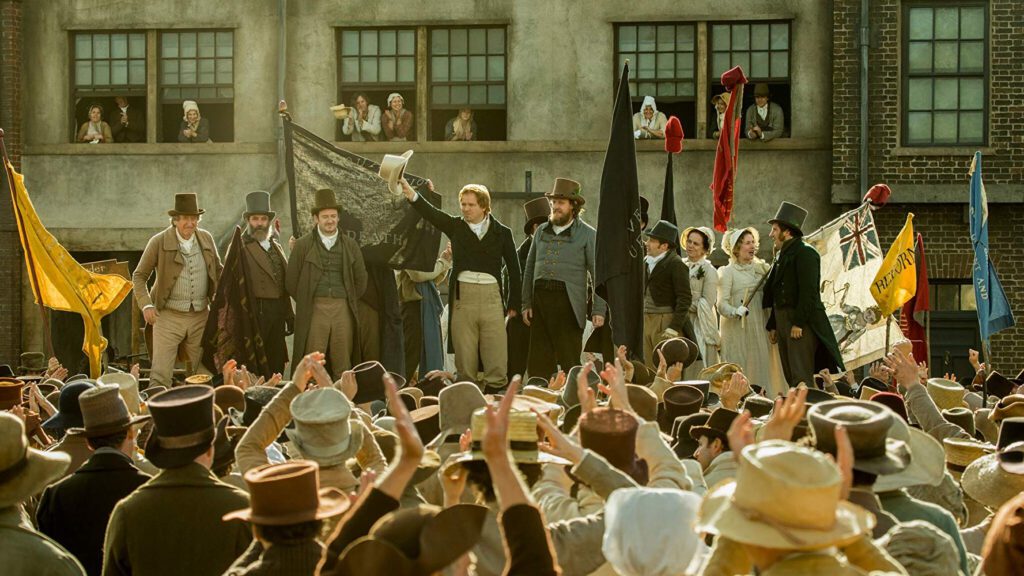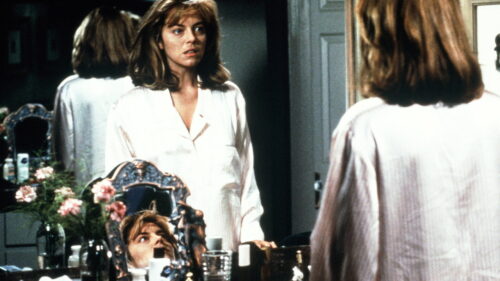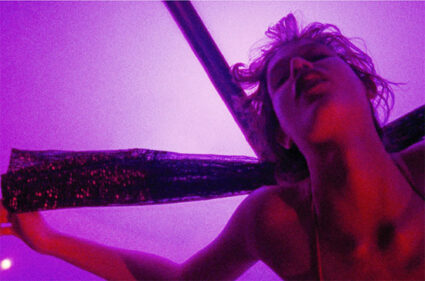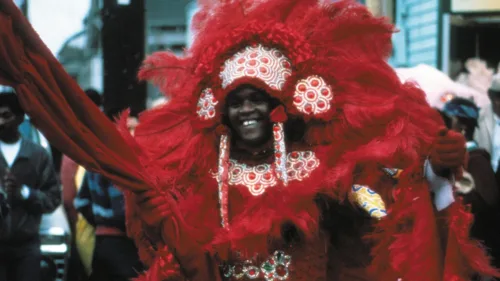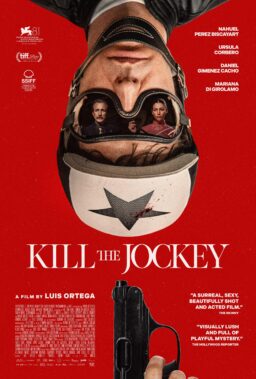Scout Tafoya’s latest edition of The Unloved is about a particular Mike Leigh film, “Peterloo.” But its observations apply to Mike Leigh generally, and to the western experience (English, specifically). Set in 1819, the film’s title refers to the Peterloo Massacre, which occurred when Manchester police charged into a crowd of 60,000 convened on St. Peter’s Field by the Manchester Patriotic Union to agitate for parliamentary representation. English working people had been suffering even worse deprivation than usual thanks to the Corn Laws, which enriched farmers at the expense of the urban poor. Eighteen people were killed with sabres by mounted police. Another 300-400 were wounded. In the headline of a local newspaper, the St. Peter’s field massacre became Peterloo, as in Waterloo.
Scout is a video essayist who’s as attentive to history and politics as to aesthetics. He situates “Peterloo” within Leigh’s long career making films about class struggle and resentment. His narration calls the film “a mass deposition of early 19th century lower class misery,” and notes that “except for the accents and clothing, viewers the world over ought to recognize the bitter inequities with which the denizens of Leigh’s Manchester live.” Linking it to earlier Leigh films, including “Secrets and Lies” and “Vera Drake,” we may sense Leigh’s kinship to another muckraking UK dramatist, Ken Loach; even though the two directors aren’t politically identical, they’re equally fascinated by the contrast between privilege and poverty, as well as by how power feeds money and vice-versa.
The beauty of cinematographer Dick Pope’s images is commemorated in a brief section comparing the lighting to realistic oil paintings of the period—by masters who, like Leigh, memorialize struggle by showing a world whose denizens are too beaten down to notice the beauty of the light. — Matt Zoller Seitz
To watch more of Scout Tafoya’s video essays from his series The Unloved, click here.
